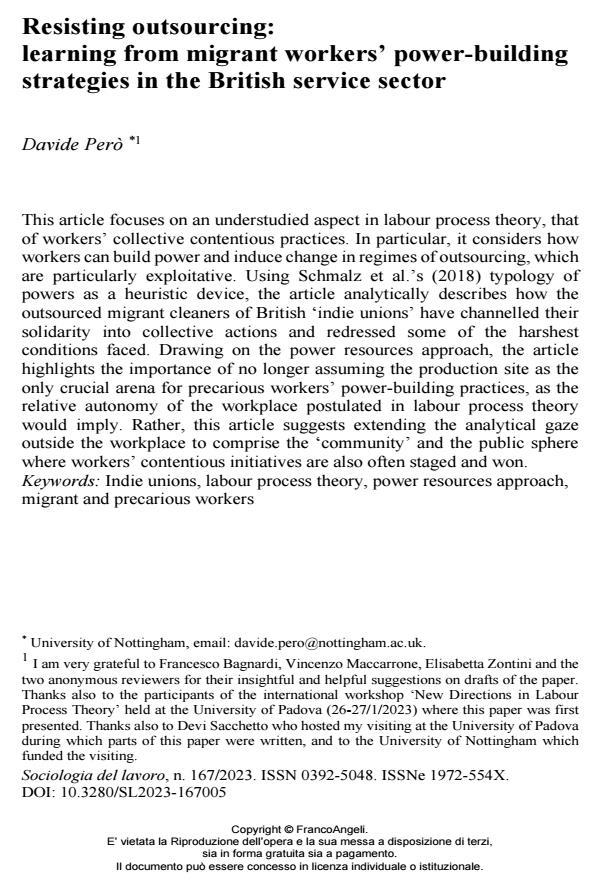Resisting outsourcing: learning from migrant workers’ power-building strategies in the British service sector
Titolo Rivista SOCIOLOGIA DEL LAVORO
Autori/Curatori Davide Però
Anno di pubblicazione 2024 Fascicolo 2023/167
Lingua Inglese Numero pagine 21 P. 100-120 Dimensione file 233 KB
DOI 10.3280/SL2023-167005
Il DOI è il codice a barre della proprietà intellettuale: per saperne di più
clicca qui
Qui sotto puoi vedere in anteprima la prima pagina di questo articolo.
Se questo articolo ti interessa, lo puoi acquistare (e scaricare in formato pdf) seguendo le facili indicazioni per acquistare il download credit. Acquista Download Credits per scaricare questo Articolo in formato PDF

FrancoAngeli è membro della Publishers International Linking Association, Inc (PILA), associazione indipendente e non profit per facilitare (attraverso i servizi tecnologici implementati da CrossRef.org) l’accesso degli studiosi ai contenuti digitali nelle pubblicazioni professionali e scientifiche.
This article focuses on an understudied aspect in labour process theory, that of workers’ collective contentious practices. In particular, it considers how workers can build power and induce change in regimes of outsourcing, which are particularly exploitative. Using Schmalz et al.’s (2018) typology of powers as a heuristic device, the article analytically describes how the outsourced migrant cleaners of British ‘indie unions’ have channelled their solidarity into collective actions and redressed some of the harshest conditions faced. Drawing on the power resources approach, the article highlights the importance of no longer assuming the production site as the only crucial arena for precarious workers’ power-building practices, as the relative autonomy of the workplace postulated in labour process theory would imply. Rather, this article suggests extending the analytical gaze outside the workplace to comprise the ‘community’ and the public sphere where workers’ contentious initiatives are also often staged and won.
Parole chiave:Indie unions, labour process theory, power resources approach, migrant and precarious workers
Davide Però, Resisting outsourcing: learning from migrant workers’ power-building strategies in the British service sector in "SOCIOLOGIA DEL LAVORO " 167/2023, pp 100-120, DOI: 10.3280/SL2023-167005